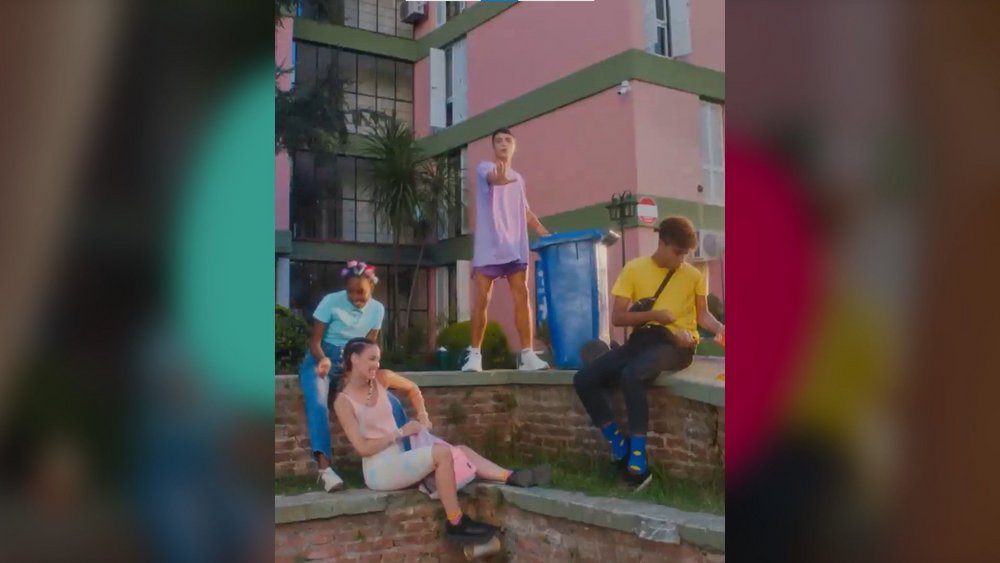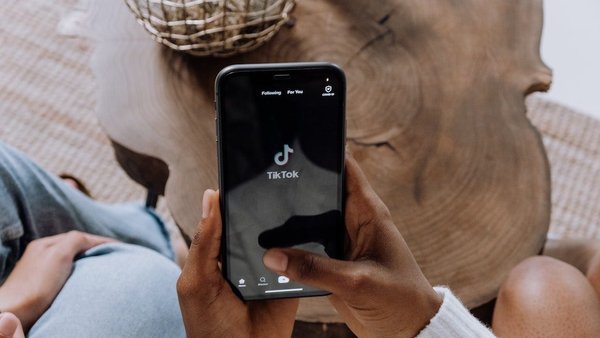Contagious Spotlight on Latin America: June 2021 /
Luísa Fedrizzi
/The Contagious team in Brazil picks its favourite campaigns from across Latin America over the past month, highlighting the creativity and strategy that makes the work relevant and interesting.
Mercado Livre, Novos Beijos Icônicos (New Iconic Kisses) / GUT, Brazil /
In June, online retailer Mercado Livre released an ad recreating the most famous kisses in history with LGBTQIA+ couples, to celebrate International Pride Month.
The campaign, ‘New Iconic Kisses’ (Novos Beijos Icônicos), recreates kisses immortalised in pop culture, such as those from movies, like Spider-Man and Titanic, and from history, like the royal wedding kiss between Prince Charles and Diana.
Created by GUT, the campaign debuted at the LGBTQIA+ Pride Parade in São Paulo, which took place online again this year.
‘There are dozens of kisses considered iconic and they all have one thing in common: they are performed by a heterosexual couple. As a brand that believes in freedom, including for love, we decided to rethink these kisses,’ said GUT’s Bruno Brux.
Contagious Insight /
Commitment to courage / LGBTQIA+ displays of affection in public are still taboo in Brazil. Cases of aggression and homophobia motivated by a simple kiss are still very common and the country was deemed the most unsafe for transgender people by the Trans Murder Monitoring project in 2020 for the twelfth consecutive year.
Highlighting demonstrations of love between people of the same sex is therefore a courageous gesture from Mercado Livre, indicating that the brand's commitment to the LGBTQIA+ cause goes beyond Pride month.
A bet on UGC / The campaign also relies on community-generated content to spread the message of acceptance, respect and celebration of freedom, making the new iconic photos available on an unrestricted basis.
‘Anyone who wants to download it, who wants to produce a poster, a mug, a T-shirt, can. The more downloads, the more people, the more sellers using the images, the better, because that way we will be able to change this heteronormative view,’ said Thais Souza Nicolau, regional director of branding at Mercado Livre. For every download, the company is also donating R$1 to Casa1, a culture and reception center for the LGBTQIA+ community located in São Paulo.
Amazon Prime Video, Linha do Crime (Crime Line) / DOJO, Brazil /
Amazon Prime Video in Brazil recreated a 1990s-style true crime documentary to promote a new show based on the life of criminal gang leader Pedro Dom.
The brand worked with agency Dojo to create the ad. It is fronted by José Luiz Datena, a popular TV host who made his name presenting a true crime TV show called Alert City (Cidade Alerta) in the 1990s. Datena is a local icon of the sensationalist police press, and the campaign's strategy taps into that persona in favor of the series' almost unreal plot.
In the campaign film, Datena recreates his classic reporting style and his catchphrases to tell viewers to watch Amazon’s show about Pedro Dom.
Contagious Insight /
Life imitates art / Remembering that, often, real stories are as unbelievable as fiction can be a good creative insight. By pursuing the style of news coverage that marked the time when Dom's crimes took place, Prime Video reinforces the fact that the show is based on a true story.
The new nostalgia / As the last half of millennials and the first half of Generation Z reach young adulthood, the 1990s and 2000s have become a prominent period for nostalgia in pop culture.
The desire to (re)discover the period and its characters and cultural codes is increasingly evident in music, fashion, movies, and even advertising. Take, for instance, shows like The People v. O.J. Simpson: American Crime Story and the Framing Britney Spears documentary. Dom does the same in the Brazilian context – and the resumption of Datena's character and aesthetics completes the realistic portrait of the period.

TikTok, #LaTeoríaDelTIKTOK (TikTok's Theory) / Don, Argentina /
TikTok in Argentina has begun posting videos to educate users on how they can hide their personal information within the app and better control their privacy.
The videos made as part of the ‘TikTok's Theory’ (#LaTeoríadelTIKTOK) campaign follow the same style of user videos on the platform. They highlight the seriousness involved in using TikTok – or, as the film says, ‘there's something serious in everything fun, and there's something fun in everything serious’. It highlights the specific settings people can tap into to make their profiles more private and safe.
Young people and teenagers are TikTok's main users. According to eMarketer's projections, the platform is expected to reach 37.3 million Gen Z members in the US alone this year, outpacing apps like Instagram and Snapchat.
Contagious Insight /
Privacy First / Dedicating resources and creative energy to address the topic of user privacy demonstrates commitment and goes a long way in building trust at a time when many social media platforms stand accused of harvesting as much user data as they can. This is especially important for TikTok, which is the home of Gen Z, a young and sometimes vulnerable demographic.
When In Rome / The best way to address a serious and sensitive issue such as personal protection and privacy is to use the platform's own native language. For this reason, TikTok's ‘serious’ information video emulates ordinary content. It’s light, colorful and fast and captures users' attention by speaking to them as equals.
Want more of the same? /
We don’t just write about best-in-class campaigns, interviews and trends. Our Members also receive access to briefings, online training, webinars, live events and much more.







